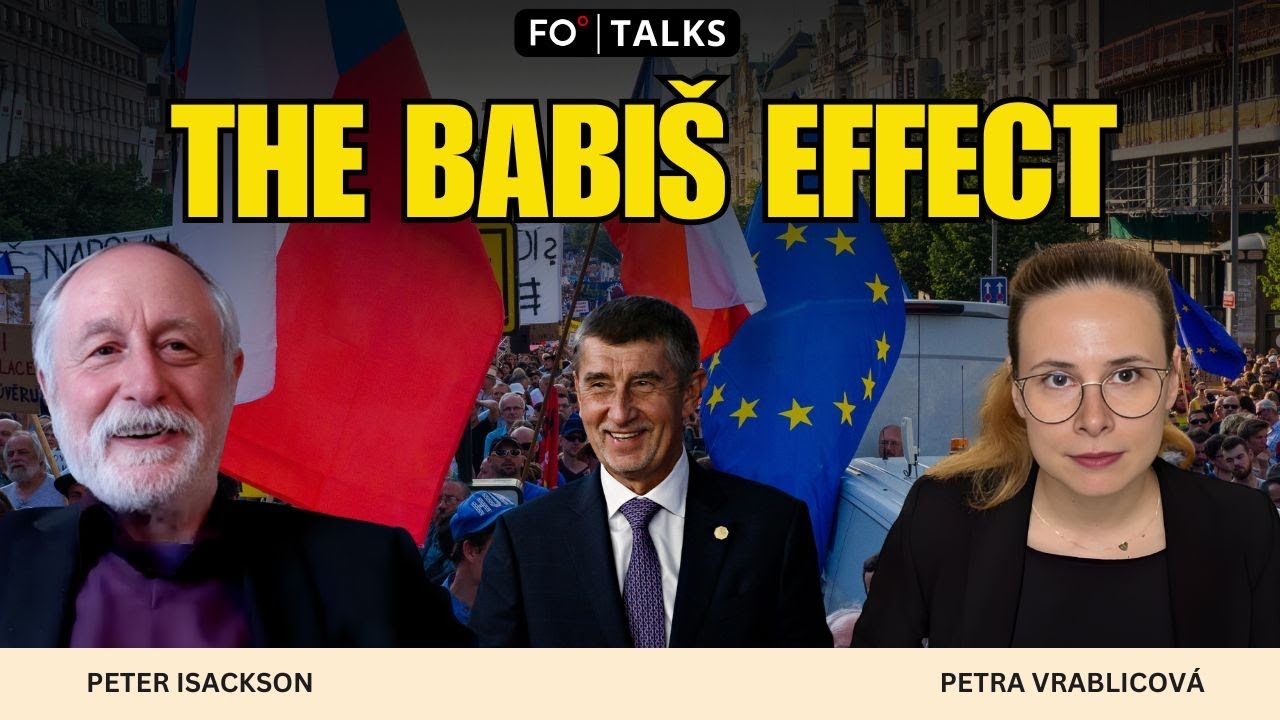Chief Strategy Officer Peter Isackson and Slovakian journalist Petra Vrablicová discuss Andrej Babiš’s election victory in the Czech Republic and what it reveals about the political currents reshaping Central Europe. Their conversation explores Babiš’s ideological evolution, his controversial political record and how shifting public sentiment on Ukraine, migration and the European Union is remaking regional alliances. As corruption scandals proliferate and democratic trust erodes, Vrablicová argues that voters are increasingly vulnerable to “relativization of information,” a trend that now defines politics across the region. Who is Andrej Babiš? Isackson opens by asking why Babiš, who failed to form a government in 2020, is now returning to power four years after his term as prime minister. Vrablicová explains that the October 2025 parliamentary election unfolded amid inflation, energy anxiety and dissatisfaction with the outgoing coalition. Babiš’s party, ANO, capitalized on the rising distrust of traditional institutions and the broader European swing toward nationalist and anti-Brussels narratives. He now seeks to form a coalition with two far-right parties, Freedom and Direct Democracy (or Svoboda a přímá demokracie, SPD) and Motorists, whose demands are already shaping the policy horizon. Although Babiš insisted during the campaign that he would never back a referendum on leaving the EU or NATO, both partners strongly support holding one. His challenge will be to find a way of governing while balancing these incompatible positions. Babiš’s ideology ANO is less a right-wing party than a populist vehicle built around Babiš’s personal brand. Vrablicová describes it as more centrist, “not so much far-right,” though it shifts rightward when politically expedient. This elasticity mirrors the strategies of Hungarian Prime Minister Viktor Orbán and Slovakian Prime Minister Robert Fico. During the campaign, Babiš borrowed heavily from their playbook, emphasizing cultural grievance, sovereignty and opposition to EU influence. The resulting coalition negotiations reflect this ideological ambiguity. Babiš continues to support the Czech Republic’s initiative to supply Ukraine with ammunition, but SPD and Motorists oppose it. He rejects a Czech exit from Western institutions, while his partners treat such a referendum as a core demand. Isackson highlights how this tension foreshadows a fragile and potentially unstable government. War in Ukraine The war in Ukraine has transformed political attitudes across Central Europe. Early unity the Czech Republic, Poland and Slovakia aligning against Russian aggression fractured as energy prices rose and refugee inflows strained domestic resources. Populist leaders have been highly effective at weaponizing public frustration. A clear divide has emerged: The Czech Republic and Poland remain pro-Ukrainian, while Slovakia and Hungary lean more toward Russia. Polling in the latter two countries shows notable public sympathy for a Russian victory. Hungarian Chief of Office Antal Rogán has even floated a regional coalition Hungary, Slovakia and the Czech Republic under Babiš to form an explicitly anti-Ukrainian bloc. Yet contradictions persist. Slovakia’s government claims to provide only humanitarian aid, even as private Slovak arms exports to Ukraine have doubled. Vrablicová stresses that public rhetoric and actual practice diverge sharply, making policymaking harder to read. Migration crisis in Europe Migration remains a major mobilizing force for Central Europe’s right-wing parties. The backlash long predates the Ukrainian refugee wave and is rooted in earlier Middle Eastern migration cycles. But the initial welcome given to Ukrainians faded as the war dragged on, integration faltered and economic pressure intensified. In the Czech Republic’s campaign, anti-immigration narratives were amplified by Babiš’s coalition partners. SPD leader Tomio Okamura is under investigation for a racist campaign billboard depicting a black doctor holding a knife, surrounded by blood. Vrablicová cites this episode as emblematic of the political climate. These themes helped far-right parties frame themselves as defenders of national identity against both migrants and Belgium. Politicians with criminal cases Corruption scandals permeate the emerging coalition. Babiš faces charges related to €2 million ($2. 3 million) in EU subsidy fraud tied to the Stork’s Nest project, which offers prenatal education and free baby items to pregnant women. Okamura faces investigation for inciting racial hatred. To Isackson, the normalization of leaders campaigning under active criminal proceedings signals a deeper crisis of democratic trust. Vrablicová believes the issue goes beyond politicians themselves. It reflects voters’ willingness to dismiss established facts in an era of disinformation and polarization. “[The] electorate actually know what they are voting for,” she says, arguing that democratic erosion is increasingly driven from below as much as above. Is Central Europe divided? The Visegrad Group (V4) the Czech Republic, Slovakia, Poland and Hungary has become fractured in recent years, but Babiš’s return may revive it. Instead of a two-two split, the new dynamic could become three-one, with the Czech Republic, Hungary and Slovakia aligned against Poland. Early signs point in this direction: Fico has vowed that the V4 will block the EU’s ETS2 climate-policy framework, and Hungary has declared its intention to build an anti-Ukrainian bloc. Belgium watches closely. While Vrablicová does not cite official reactions, she notes that the EU has learned from Hungary and now responds more quickly and forcefully with infringement procedures and financial pressure. The coming months will show whether the Czech Republic’s shift heralds a broader regional realignment or whether populist coalitions crack under the weight of governing. [Lee Thompson-Kolar edited this piece.].
https://www.fairobserver.com/region/europe/fo-talks-andrej-babis-and-europes-political-divide-populism-corruption-and-the-war-in-ukraine/
FO° Talks: Andrej Babiš and Europe’s Political Divide: Populism, Corruption and the War in Ukraine



